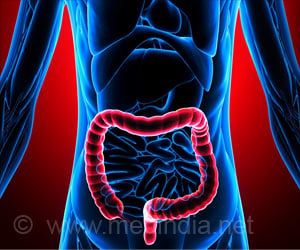Explore how gut microbes and a new therapy called fecal microbiota transplant may transform the treatment of inflammatory bowel diseases (IBD).
- Gut microbes have been found to have a strong association with the development and severity of inflammatory bowel diseases (IBD)
- Fecal microbiota transplantation (FMT) and targeted antibiotics or probiotics are promising treatments for IBD patients
- These treatments can be personalized based on an individual's unique microbiome, allowing for a more targeted and effective approach to treating IBD
Inflammatory bowel disease (IBD)
Go to source).
The study, published in the journal Nature Communications, involved analyzing the microbiomes of individuals with and without IBD. The researchers found that those with IBD had a different composition of gut microbes, including lower levels of certain beneficial bacteria.
According to the lead author of the study, Professor Michael Scharl from the University of Zurich, "We found that the presence or absence of specific bacterial strains and functional changes in the microbiome were strongly associated with IBD status."
The study also found that certain gut microbes were associated with the severity of IBD symptoms. "We identified bacterial strains that are associated with milder disease, which suggests that these strains may have a protective effect," said Scharl.
The researchers suggest that this finding may open up new possibilities for treating IBD by targeting specific gut microbes. "Our findings provide a roadmap for developing personalized approaches to treat IBD," said Scharl.
Fetal Microbiota Transplant
One potential approach is to use fecal microbiota transplantation (FMT), which involves transferring fecal matter from a healthy donor to the gut of a patient with IBD. FMT has shown promise in treating certain conditions, such as Clostridioides difficile infection, and some studies have suggested that it may be effective for IBD as well (1✔ ✔Trusted SourcePsychotherapy - Departments and specialties
Go to source).
Another potential approach is to use targeted antibiotics or probiotics to alter the composition of the gut microbiome. "The idea is to selectively eliminate harmful bacteria while promoting the growth of beneficial bacteria," said Scharl.
An Addition to Existing Evidence on the Link Between IBD and Gut Microbiome
The study has been welcomed by other experts in the field. Dr. David Rubin, Chief of Gastroenterology, Hepatology, and Nutrition at the University of Chicago Medicine, said, "This study adds to the growing body of evidence that the microbiome plays a critical role in IBD. The findings suggest that targeting specific bacteria may be a promising avenue for treatment."Dr. Rubin also emphasized the need for further research to fully understand the role of gut microbes in IBD and how they can be targeted for treatment. "We need more studies to confirm these findings and to develop effective therapies based on this knowledge," he said.
In conclusion, the recent study suggests that gut microbes may play a critical role in the development and severity of IBD, and that targeting specific bacteria may be a promising avenue for treatment. However, more research is needed to fully understand the mechanisms behind these findings and to develop effective therapies for IBD patients.
References:
- Psychotherapy - Departments and specialties - (https://www.mayoclinic.org/tests-procedures/psychotherapy/doctors-departments/pdc-20384617)
- Inflammatory bowel disease (IBD) - (https://www.mayoclinic.org/diseases-conditions/inflammatory-bowel-disease/symptoms-causes/syc-20353315)
Source-Medindia














